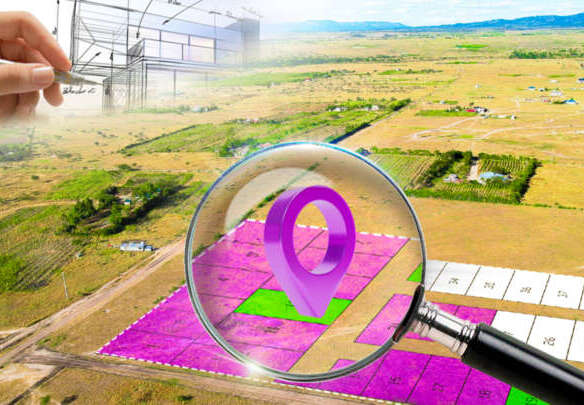Why Buying Plots in Kenya Has Surged—and Why It’s the Smartest Investment in 2025
In recent years, we have witnessed an unprecedented surge in plot buying in Kenya, driven by a blend of socio-economic, infrastructural, and demographic dynamics. As traditional investment vehicles like stocks and savings accounts face volatility or stagnation, land continues to prove its resilience and profitability.
This article explores why the demand for plots in Kenya has grown significantly, backed by recent data, and highlights why land outperforms other investment options in the market today.
-
Plot Buying in Kenya has Increased Due to Urbanization & Infrastructure Boom
Kenya’s urbanization rate stands at 4.3% per year, one of the highest in Sub-Saharan Africa (World Bank, 2023). With Nairobi’s population expected to hit 6 million by 2030, there’s increasing demand for housing, commercial spaces, and amenities.
Projects like the Nairobi Expressway, the LAPSSET corridor, and the Standard Gauge Railway (SGR) have transformed land accessibility and increased its value. For instance:
- Land prices in Athi River, near the Expressway, appreciated by over 17% in just two years.
- Konza Technopolis, often referred to as Kenya’s “Silicon Savannah,” has driven land prices in nearby areas like Malili and Isinya up by 40% since 2020.
-
Population Growth & Housing Shortage
Kenya’s population crossed 54 million in 2023 (KNBS), and it’s projected to reach 66 million by 2040. This exponential growth fuels demand for residential and mixed-use developments.
Moreover, Kenya faces a housing deficit of approximately 2 million units, with an estimated 200,000 new units required annually—yet only about 50,000 are being built each year (State Department for Housing, 2023). Land investors are capitalizing on this demand by securing prime plots in emerging areas poised for development.
-
Land Offers Better ROI than Traditional Investments
Compared to other investment classes, land in Kenya has consistently delivered higher and more stable returns:
- Nairobi’s satellite towns such as Ruiru, Ongata Rongai, and Kitengela have seen annual land value appreciation rates of 12–20%, far outpacing average fixed deposit interest rates of 7–9% (CBK, 2023).
- The Nairobi Stock Exchange (NSE), while offering high short-term gains, is volatile. The NSE 20 Share Index dropped 18.9% in 2022, while land prices in the same year rose by 13.7% on average.
- Government Treasury Bills currently offer a return of 9–11%, but these are taxable and do not provide a tangible asset with long-term growth potential like land.
-
Security, Tangibility & Stability
Land is a finite resource. As the population grows and urban centres expand, the availability of undeveloped land shrinks. This scarcity makes it a low-risk, high-appreciation asset.
Furthermore, land ownership in Kenya has become more secure due to reforms such as the Land Registration Act of 2012 and the digitization of records via the ArdhiSasa platform, which has reduced title fraud and streamlined verification thus increasing confidence in plot buying in Kenya.
-
Land allows for various use cases:
- Agriculture: With 75% of Kenya’s workforce engaged in agriculture (FAO, 2022), farmland remains in high demand.
- Residential development: Affordable housing projects are springing up around towns like Joska, Kangundo Road, and Kamulu—driven by the availability of land.
- Commercial or rental development: Investors are subdividing plots to create rental units, a sector that has grown by over 22% in urban areas since 2020.
-
Plot Buying in Kenya has been Enhanced by Favorable Government Policies
The Kenyan government has actively promoted land and housing investment. Key initiatives include:
- The Affordable Housing Programme, targeting 500,000 units by 2027, has attracted both public and private land investors.
- The Infrastructure Bond Programme has led to increased construction of roads, water systems, and power connections, directly enhancing land value in target regions.
In addition, counties are developing Integrated Urban Development Plans (IUDPs), guiding zoning and boosting investor confidence in purchasing land for planned use.
-
Technology is Simplifying Land Transactions
With the rollout of ArdhiSasa in Nairobi and its expansion to other counties, title deed verification and transfers have become faster and more transparent. As of early 2024:
- Over 800,000 title records have been digitized.
- Property searches that previously took weeks now take less than 48 hours.
This digitization has not only reduced land fraud but has also made it easier for Kenyans in the diaspora to invest in land with confidence.
-
Inflation Hedge & Wealth Preservation has Push Demand for Plot Buying in Kenya
Land acts as a natural hedge against inflation. Kenya’s annual inflation rate averaged 6.7% in 2023, eroding the real value of savings and fixed deposits. Land, on the other hand, appreciated on average by 13–18%, depending on the location, effectively preserving and growing investor wealth.
Unlike depreciating assets like vehicles or volatile digital assets, land continues to gain value over time, making it a strong store of wealth.
Conclusion: Land Investment is the Way Forward
In 2025, land in Kenya is more than just an asset—it’s a powerful tool for wealth creation and financial security. Whether you’re a young investor looking to secure your future, an entrepreneur aiming to develop the property, or a diaspora Kenyan seeking a stable investment back home, the land offers unmatched advantages and that is why a reliable company such as Uwezo Land Limited is offering assistance in plot buying to every potential investor to own and possess prime plots which will be a valuable asset to own.
With data showing consistent appreciation,legal reforms boosting security, and infrastructural projects increasing land value, investing in land today could be the smartest decision you’ll make for your financial future.





Join The Discussion